Blog
Check out our blog posts Transits and forecasts
Transits and forecasts
Monthly Horoscope for February 2026 Reading time 11 min
Check out the monthly horoscope and discover how astrological transits may correspond to events in the world a...
 Forecast 2026
Forecast 2026
Mercury Retrograde in 2026: Calendar, Challenges, and Survival Guide Reading time 10 min
Plan your 2026 with the dates for Mercury retrograde. Learn how Pisces, Cancer, and Scorpio influence communic...
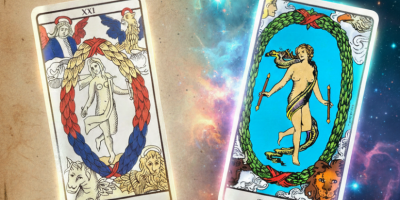 Tarot and Lenormand Cards
Tarot and Lenormand Cards
What is the difference between the Tarot de Marseille and the Rider... Reading time 4 min
The Tarot de Marseille is one of the most popular in the world, as is the Rider Waite Tarot. As well as differ...
 Astrology
Astrology
Rising, 1st House and Ruling Planet: How Your Identity Is Formed Reading time 14 min
Discover how the Ascendant, 1st House, and ruling planet work together to construct your identity and way of a...
 Astrology
Astrology
The Rising in Each Sign: Meanings and First Impressions Reading time 9 min
Discover the meaning of the Rising in each sign and understand how it influences your behavior, attitude, and...
 Astrology
Astrology
How to Accurately Discover Your Rising Sign Reading time 9 min
Learn how to find your Ascendant, why your birth time changes everything, and what to do if you don?t know the...
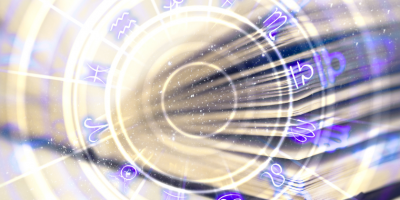 Astrology
Astrology
Sun and Rising Sign: What is the Difference? Reading time 9 min
Understand the difference between Sun sign and Ascendant, and discover why you might feel one way inside but a...
 Forecast 2026
Forecast 2026
Astrological Predictions for 2026: The Year's Key Highlights Reading time 5 min
Explore the astrological outlook for 2026: Saturn and Neptune in Aries, Uranus in Gemini, and Jupiter in Leo s...
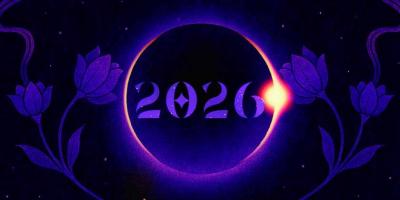 Forecast 2026
Forecast 2026
Eclipses in 2026: Calendar, Dates, Signs, and Astrological Meanings Reading time 14 min
Check out the dates and meanings of the solar and lunar eclipses of 2026. Understand their astrological effect...
 Forecast 2026
Forecast 2026
Numerology for 2026: The Complete Guide Reading time 5 min
Find out what 2026 has in store for you according to numerology: explore trends for love, health, finances, wo...
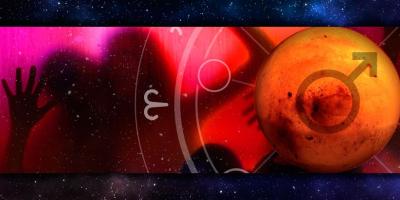 Relationships and Emotional Life
Relationships and Emotional Life
Mars and sexual energy in each zodiac sign Reading time 7 min
In Astrology, Mars is also known as the planet of desire and sex. When associated with the signs, it tends to...
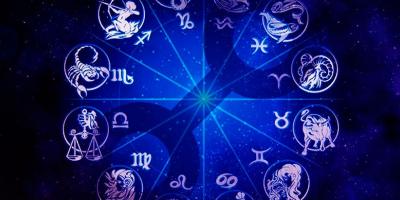 Astrology
Astrology
Opposite and complementary signs Reading time 5 min
The Opposite and Complementary Signs in Astrology are Aries and Libra, Taurus and Scorpio, Gemini and Sagittar...
 Astrology
Astrology
Eclipses in the Birth Chart Reading time 12 min
Discover how eclipses activate and transform specific areas of your birth chart and your life.
 Astrology
Astrology
The Saturn Return: Meaning and Impact Reading time 9 min
Understand the meaning of the Saturn Return, its effects on adulthood, and how to navigate this cycle with gre...
 Astrology
Astrology
Mercury Retrograde in Astrology Reading time 17 min
When Mercury goes into retrograde, its transit can influence some changes in our lives. Read everything you ne...
 Relationships and Emotional Life
Relationships and Emotional Life
Synastry: An Important Guide to Understanding Relationships Reading time 13 min
Success and happiness are closely linked to our ability to live harmoniously with others. Here at Astrolink, y...
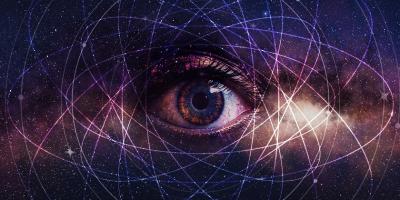 Spirituality and Self-Discovery
Spirituality and Self-Discovery
The 7 Hermetic Principles Reading time 8 min
Mentalism, Correspondence, Vibration, Polarity, Rhythm, Cause and Effect, and Gender. Learn about the 7 Hermet...
 Astrology
Astrology
Solar and Lunar Eclipses: Understanding the Phenomenon, Types, and M... Reading time 11 min
Learn what solar and lunar eclipses are, their types, curiosities, and their impact on the birth chart. Unders...
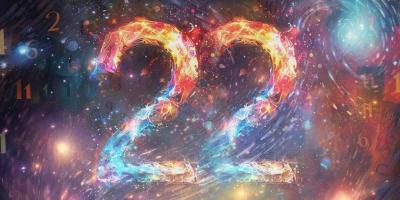 Numerology
Numerology
Number 22 in Numerology: Understand Its Meanings Reading time 10 min
Explore the meaning of number 22 in numerology and discover its influences in love, career, spirituality, and...
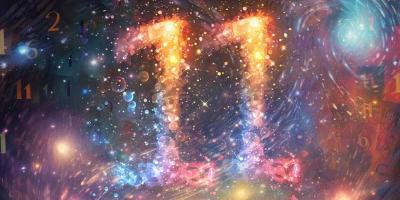 Numerology
Numerology
Number 11 in Numerology: Discover Its Meanings Reading time 8 min
Explore the meaning of number 11 in numerology and learn about its influences on love, work, spirituality, and...
 Numerology
Numerology
Numerology for each sign 2025 Reading time 3 min
Find out how Year 9 in numerology will bring self-knowledge and new cycles for each zodiac sign in 2025. Disco...
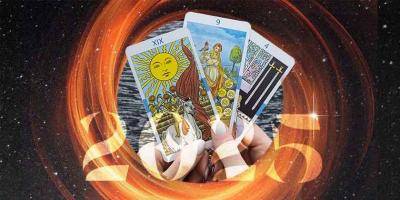 Numerology
Numerology
Personal Arcana in 2025: Discover your mission for the year Reading time 7 min
Discover your Personal Arcana and life mission in 2025. Learn how the energies of the coming year can guide yo...
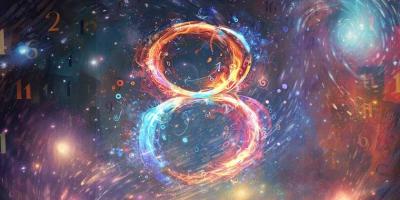 Numerology
Numerology
Number 8 in Numerology: Unveiling Its Secrets Reading time 7 min
Explore the meaning of number 8 in numerology and discover its influences in love, work, spirituality, and the...
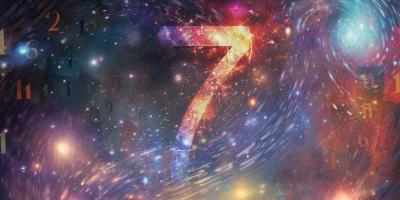 Numerology
Numerology
Number 7 in Numerology: Discover Its Meanings Reading time 9 min
Explore the meaning of number 7 in numerology and discover its influences on love, work, spirituality, and the...
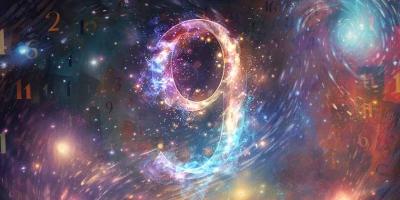 Numerology
Numerology
Number 9 in Numerology: Understand Its Meanings Reading time 8 min
Explore the meaning of number 9 in numerology and discover its influences on love, work, spirituality, and the...
 Tarot and Lenormand Cards
Tarot and Lenormand Cards
Tarot Predictions for 2025 Reading time 5 min
Discover the Tarot predictions for 2025 and see their influences on love, health, finances, and work, with ins...
 Numerology
Numerology
Numerology Predictions for 2025 Reading time 3 min
Discover the Numerology 2025 predictions and learn how the number 9 impacts love, health, finances, and work....
 Astrology
Astrology
Empty Houses in the Birth Chart: What They Are and Their Impact on L... Reading time 9 min
Discover what it means to have empty houses in your birth chart and how this affects your life. Learn how to i...
 Tarot and Lenormand Cards
Tarot and Lenormand Cards
Celtic Cross in Tarot: Learn to play this method Reading time 3 min
The Celtic Cross in Tarot is a method recommended for those seeking deeper and more comprehensive answers. Lea...
 Tarot and Lenormand Cards
Tarot and Lenormand Cards
Rider-Waite Tarot: everything you need to know to start playing Reading time 4 min
The Rider-Waite Tarot is one of the most widely used decks around the world. Discover its characteristics, lea...
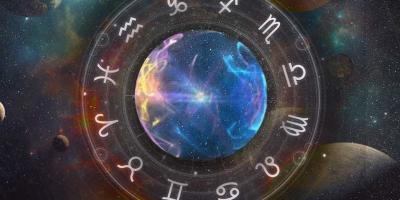 Astrology
Astrology
Astrology and Artificial Intelligence Reading time 6 min
Learn about the contributions and challenges of the union between Astrology and Artificial Intelligence and di...
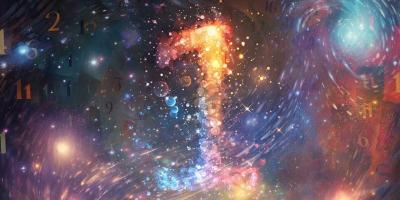 Numerology
Numerology
Number 1 in Numerology: discover the meanings Reading time 7 min
Discover the meaning of number 1 in numerology and its influences on love, work, and spirituality
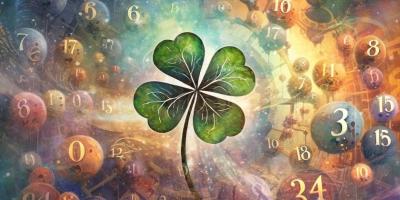 Numerology
Numerology
Do lucky numbers exist? Find out how to discover yours Reading time 3 min
Learn how to calculate your lucky numbers through numerology and discover how they can positively influence yo...
 Tarot and Lenormand Cards
Tarot and Lenormand Cards
Step-by-step guide to play Gypsy Cards Reading time 7 min
Learn a simple step-by-step guide on how to play gypsy cards and start reading the cards right now!
 Numerology
Numerology
Learn what Personal Arcana is and how to discover yours Reading time 6 min
Explore the world of personal arcanas and understand how the combination of tarot and numerology can reveal yo...
 Astrology
Astrology
2024 Yearly Horoscope Reading time 7 min
Check out the complete horoscope for 2024 and discover the trends that Astrology points to for the new cycle....
 Tarot and Lenormand Cards
Tarot and Lenormand Cards
Tarot Predictions for 2024 Reading time 7 min
Discover what to expect from the next year with the Tarot predictions for 2024. Ruled by the arcana The Streng...
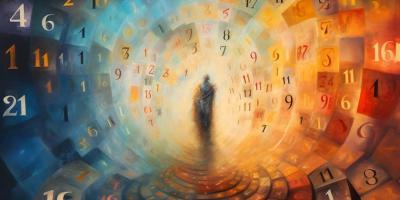 Numerology
Numerology
Discover the Meaning of Numbers in Numerology Reading time 11 min
Learn the meaning of each number in numerology, discover how they influence our personality and interactions,...
 Astrology
Astrology
Lunar Eclipse: Understand the Phenomenon and Its Astrological Influe... Reading time 10 min
Find out how the lunar eclipse relates to Astrology, how it occurs, what personal transformations and influenc...
 Astrology
Astrology
Solar Eclipse: Understand the Phenomenon and Its Astrological Influe... Reading time 10 min
Understand the astrological influences of a solar eclipse, find out how to make the most of this moment and un...
 Astrology
Astrology
Career Transition: How Astrology Can Help Reading time 5 min
Astrology can assist in career transitions by fostering greater awareness of your characteristics, skills, and...
 Transits and forecasts
Transits and forecasts
North Node in Aries - 2023 to 2025 Reading time 4 min
The entry of the North Node into Aries adds a more confident, dynamic and belligerent flavor to events in the...
 Relationships and Emotional Life
Relationships and Emotional Life
Emotional Dependence: What It Is and How to Break Free Reading time 9 min
Emotional dependence is characterized by an excessive need for another person to feel complete, secure, or hap...
 Numerology
Numerology
House number numerology: what it says about where you live Reading time 7 min
Learn how to calculate the numerology of your home, see the meaning of your home's energy according to numerol...
 Numerology
Numerology
What is the meaning of mirror hours? Reading time 17 min
According to numerology, seeing mirror hours is a sign from the Universe. Learn the meaning of each mirror hou...
 Astrology
Astrology
Motherhood in the Birth Chart: House 5 can bring answers Reading time 12 min
Recurring questions on the minds of women who are into Astrology. Whether they want to be a mother or not, all...
 Numerology
Numerology
Love Numerology: what the numbers reveal about relationships Reading time 9 min
What can numbers tell us about our relationships? Discover with Love numerology the main couple trends
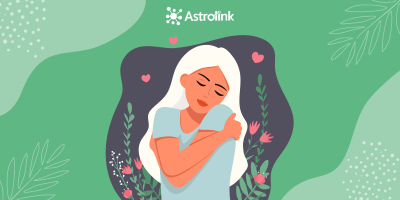 Astrology
Astrology
Self-Esteem in the Natal Chart Reading time 4 min
Astrology can help us find clues about this theme. In this article, you?ll understand how to observe your self...
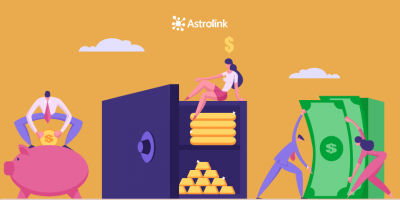 Relationships and Emotional Life
Relationships and Emotional Life
How to Handle Financial Resources in a Relationship? Reading time 4 min
Most people want to find someone to share dreams and life projects with. When that finally happens, it?s time...
 Spirituality and Self-Discovery
Spirituality and Self-Discovery
How to Achieve Emotional Balance and Maturity? Reading time 5 min
Emotional maturity is the ability to bring awareness to the realm of emotions; that is, it's one of the stages...
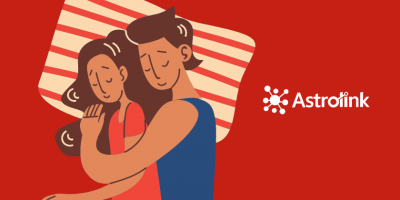 Relationships and Emotional Life
Relationships and Emotional Life
How to Maintain a Healthy Relationship Reading time 4 min
A healthy relationship is built on empathy, respect, affection, love, and, of course, a lot of self-awareness...
 Astrology
Astrology
Rising x Descendant: The other You Reading time 13 min
The Rising sign (beginning of House 1) rules our personal potential, being the place where we start things and...
 Relationships and Emotional Life
Relationships and Emotional Life
Sexuality and Astrology Reading time 9 min
Did you know that astrology can indicate many nuances of our relationship with sex, as well as the relationshi...
 Astrology
Astrology
How to Read your Birth Chart Reading time 21 min
A complete guide for you to learn step by step How to read your Birth Chart, including planets, signs, houses,...
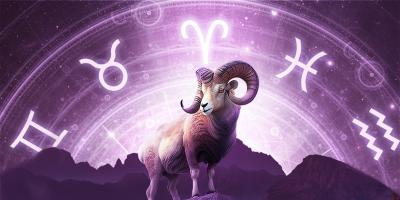 Astrology
Astrology
What is the Astrological New Year Reading time 8 min
The Astrological New Year is not related to this social convention but rather to the Spring Equinox, which occ...
 Astrology
Astrology
The Phases of the Moon and Their Meanings Reading time 16 min
Understand the 8 phases of the Moon, their meanings, and how each one influences your emotions, relationships,...
 Astrology
Astrology
What are Lunar Nodes? Reading time 19 min
The interpretation of the lunar nodes is widely used in some astrological streams. Understand what the lunar n...
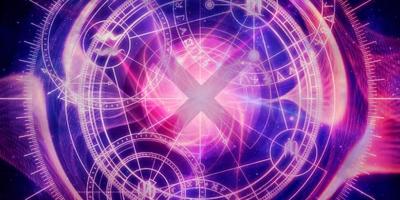 Astrology
Astrology
Part of Fortune in the Birth Chart Reading time 8 min
Much is said about the Part of Fortune (or wheel of fortune, point of fortune) in Astrology. It represents a p...
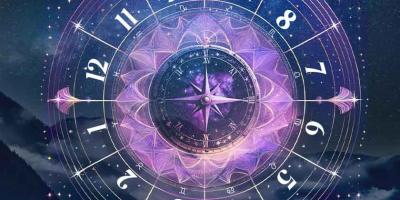 Astrology
Astrology
Quadrants and Hemispheres of the Birth Chart Reading time 19 min
A birth chart can be divided into four quadrants: Horizontal with Ascendant and Descendant and vertical, with...
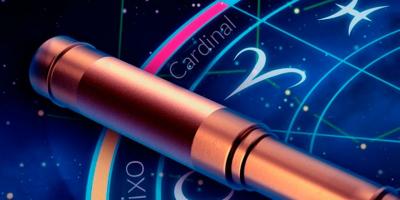 Astrology
Astrology
Understanding the Qualities of the Signs Reading time 7 min
The division of the 12 signs by the 4 elements in astrology is called triplicity, that is, for each element we...
 Astrology
Astrology
The Water Element Reading time 8 min
The Water element in astrology governs emotions, the subconscious mind, sensitivity, feelings and underlines t...
 Astrology
Astrology
The Air Element Reading time 9 min
The Air element in astrology corresponds to the mental spectrum, intellect, communication and exchange, being...
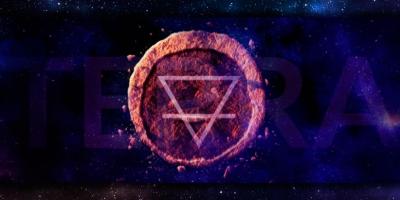 Astrology
Astrology
The Earth Element Reading time 8 min
The Earth element in astrology stands for substance and practicality, being the hallmark of Taurus, Virgo, and...
 Astrology
Astrology
The Fire Element Reading time 8 min
The Fire element in astrology represents action, motivation and creativity, being the fuel of Aries, Leo and S...
 Astrology
Astrology
Learning about the 4 Elements Reading time 8 min
We all incorporate the 4 elements in some way in our lives. We are standing on the Earth and derive part of ou...
 Astrology
Astrology
Combustion, Cazimi and Under the Sun`s Beams Reading time 9 min
For Astrology, a complete assessment of a chart must take into account several factors. One of them, little kn...
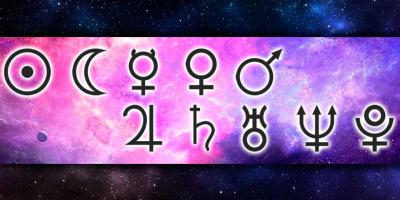 Astrology
Astrology
Planetary Symbols Reading time 11 min
Planetary symbols (or glyphs) have a history and meaning. Contrary to what many think, they are not just rando...
 Astrology
Astrology
The Rulers of the Year and the Cycle Reading time 14 min
You may have heard the phrase: This is a year ruled by Jupiter or another star. If not, it`s a common practice...
 Astrology
Astrology
Saturn`s cycles in our lives Reading time 7 min
Saturn represents one`s conscience, limits and rules, what we make of life and what we reap from it. It takes...
 Astrology
Astrology
Planetary Aspects in Astrology Reading time 20 min
Aspects essentially show how various planets relate to each other, based on the location where they are at a g...
 Astrology
Astrology
What is the Zodiac Sign for each month? Reading time 15 min
Find out what the sign of each month is and understand what criteria were considered by Astrology for this def...
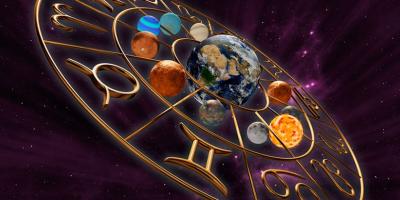 Astrology
Astrology
The Planetary Dignities Reading time 5 min
Domicile, Exile, Exalted, and Fall. The Planetary Dignities speak that the relationship between planets and si...

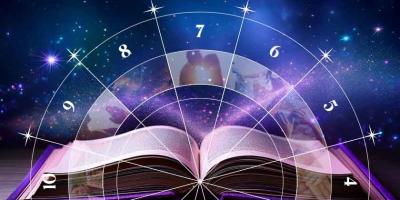


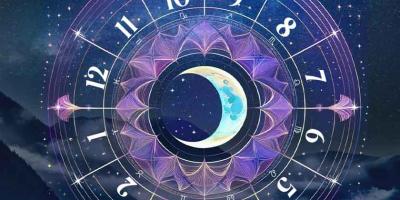


 © 2012 - 2026. All rights reserved.
© 2012 - 2026. All rights reserved.